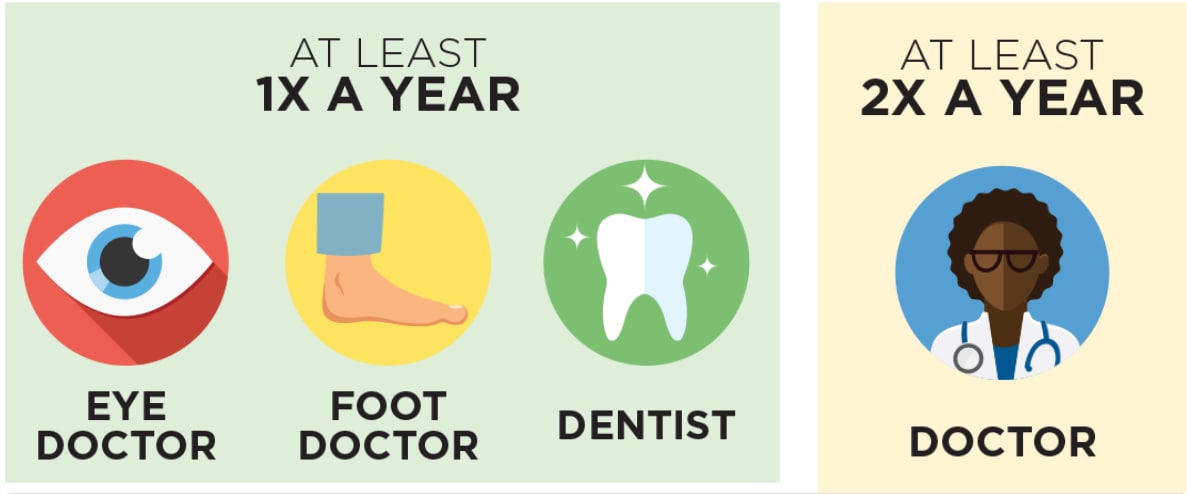What to know
Ask these important questions to understand your diabetes treatment plan and stay on track with diabetes management.

1. How do I manage my ABCs?
A: Get a regular A1C test to measure your average blood sugar over 2 to 3 months. Ask your health care team what your goal should be.
B: Try to keep your blood pressure below 140/90 mm Hg (or the target your doctor sets).
C: Control your cholesterol levels.
s: Stop smoking or don't start.
Keeping your ABC numbers close to target levels can lower your risk of long-term health problems. Ask your health care team to help you set personal targets.
2. How will I know if my medicines are working?
Are your ABC numbers close to or at your target levels?
If the answer is yes, then your medicines and efforts are working. Keep up the good work!
If the answer is no, then meet with your health care team to see if your treatment plan needs to be changed. Be sure to bring all of your medicines and blood sugar records when you meet with your care team. Bring both prescription and over-the-counter medicines.
3. When and where can I learn more about managing diabetes?
When
The best times for diabetes education and support to manage diabetes are:
- When you're first diagnosed.
- Once a year when you review your educational, nutritional, and emotional needs with your health care team.
- When new complications come up (for example, changes in your physical or emotional health or financial needs).
- During changes in your care (for example, changes to your health care team, treatment plan, or living situation).
Where
- Local diabetes education programs.
- Diabetes information sites, such the National Institute of Health's diabetes site.
- Local diabetes support groups. Ask your health care team for recommendations.
4. Which vaccines should I get?
Getting vaccinated is an important part of staying healthy, especially when you have diabetes. That's because people with diabetes have a higher risk of serious health problems that vaccines can prevent. Ask your health care team what vaccines you need and when.
5. When should I schedule health care appointments?
- See your regular health care team twice a year or more.
- See an eye doctor, foot doctor, and dentist once a year or more.
Regular health care helps you stay healthy, especially when you have diabetes. Ask to set up your next visit before you leave your health care provider's office.

